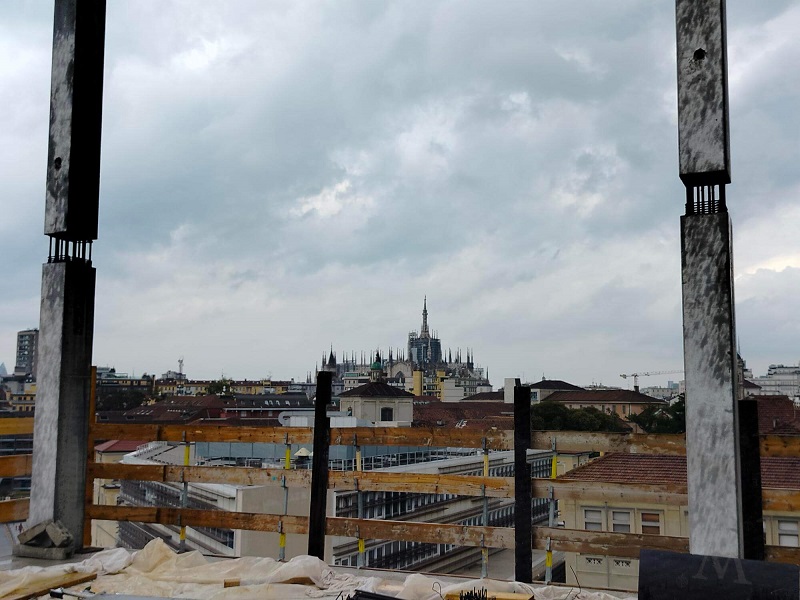This project is a challenge not only from a construction perspective due to its location right in the center of Milan, but also in terms of the environmental advancements it incorporates. The project is located in a privileged position in the center of Milan and provides services since 1456. For this reason, the intervention on this space and its integration into Milanese life are of significant importance.
This project utilizes the latest technologies to improve construction, making it more efficient and environmentally friendly. The hospital has over 700 beds and 100,000 square meters of hospital space. It consists of two buildings (north and south) for hospitalization and a central building with operating rooms that integrate a rooftop garden accessible to hospital users.
"We are building a green lung in the center of Milan that will benefit patients and citizens, improving the quality of hospital stays and the ecological contribution of the building to a city heavily congested by traffic," explains Antón Iglesias Castro, head of the project’s Technical Office.
Sustainable Materials and Construction
Photovoltaic and thermal panels have been installed on the rooftops to reduce the environmental impact of this building, improve energy efficiency, reduce emissions, and energy consumption. These panels cover a 6000-sqm area. Additionally, the complex will be equipped with geothermal heating and recycling of greywater for irrigation. Notably, there is a green roof with over 5,500 sqm of surface area, designed by Stefano Boeri, which serves as a green respite.
Recycled materials are being used for the construction, including lightweight concrete floor slabs made with recycled PVC spheres, reducing concrete consumption and waste emissions. Reusable formwork materials are also employed to save material and make installation easier.
The project also utilizes antibacterial/anti-stain materials for finishes and flooring, self-cleaning glass for the façade, and materials with bioactive properties to reduce daily cleaning with efficiency values ranging from 65-75%.
In addition to ecological and material improvements, prefabricated solutions are used to reduce construction times, waste generation, noise, and environmental dust emissions. Over 400 prefabricated bathrooms, prefabricated concrete pillars of various heights, prefabricated stairs, and modular façades with integrated self-cleaning windows will be installed.
The cellular front (made of aluminum and glass modules) is entirely assembled off-site in a single operation. It is designed to maintain interior levels of thermal and acoustic insulation, improving the building's energy efficiency, reducing emissions and consumption.
More Humane Hospitals
Acoustic isolators have been installed in interior spaces to improve the hospitalization experience for users. Areas such as outpatient facilities, medical offices, and hospital rooms achieve up to 67 dB of sound reduction with drywall partitions. The hospital features colorful decoration with screen-printed glass modules, ceiling heating, abundant lighting, high acoustic insulation, and views of the Duomo. There will also be interactive informational panels in the entrance hall.
The complexity of the project requires the use of technological and landscaping means to resolve the integration and execution of the project. Monitoring of the ground is conducted 24/7 to record potential risks during earth-moving operations to protect the stability of historically valuable buildings adjacent to the project, including hospital pavilions and a church.
The project also promotes public awareness and understanding through informational panels, allowing citizens to follow the progress of the construction through integrated windows.
Use of BIM
The project's information management is carried out online using cloud platforms. Since this is a public project, all coordination, execution, and monitoring are done with BIM methodology from Milan, with remote teams in Turin and Madrid. This methodology has improved communication, coordination, and project cohesion from the beginning of the project to the present. Engineering and design teams update the information on a weekly basis to incorporate the latest modifications, and industrial partners submit their proposals through the same means, which standardizes communication channels.
